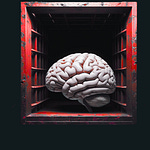AI talent is unique for its finite property, mid-mobility, and high dependence on education and immigration policies. It’s renewable, but only through long-term investment.
Unlike infrastructure or energy, which require years of heavy investment, talent can be imported. By hiring skilled professionals from abroad, you’re reaping the benefits of 20+ years of education funded by another country’s taxpayers. Mid-level and senior talent, in particular, can deliver measurable impact in less than three years.
And unlike data, endlessly replicable with a flick of a license agreement, talent is semi-liquid and finite.
Think of AI talents as rare Pokémon, which makes the AI war nearly a zero-sum game, especially in the short run. Every researcher, engineer, or scientist gained by one country is a loss for another.
My inspirations for this article:
I was an expat once, now a Brit. I thought it’d be romantic, until reality hits. I am now ready to explore yet another continent that I could call home.
Reports like those from OECD.ai and Tortoise Media look impressive—eye-catching headlines and sleek dashboards. But if you take their numbers at face value, you risk misleading your business—or worse, your country’s policy.
What happened in our world today?
In the UK, we feel the economy is stuck in reverse since Brexit. In Germany, the decline of manufacturing casts a shadow over its future. In the U.S., millions are bracing for what another Trump term might mean:
American interest in moving abroad is about to ‘go into overdrive.’ — Fortune
For some of you who live in Ukraine, Israel, or Taiwan, uncertainty is your daily life (link below).
When you can’t fix the system, you do the next best thing: you move to another. A better life for yourself, your career, and your family.
I am slowly building up an AI knowledge database. I aim to share it with you hopefully before Christmas, as a holiday gift 🎁 for you. This article is about understanding—where nations stand, what’s overlooked by the AI data companies, and how this AI arms race could change your opportunities.
The questions I aim to answer:
Some history: what’s the cost of losing talent?
Are the big-name AI talent data trustworthy?
What must go wrong for the US to lose its attraction to talent?
How likely and how long would it take for other countries to catch up?
Listen to this episode with a 7-day free trial
Subscribe to 2nd Order Thinkers to listen to this post and get 7 days of free access to the full post archives.












